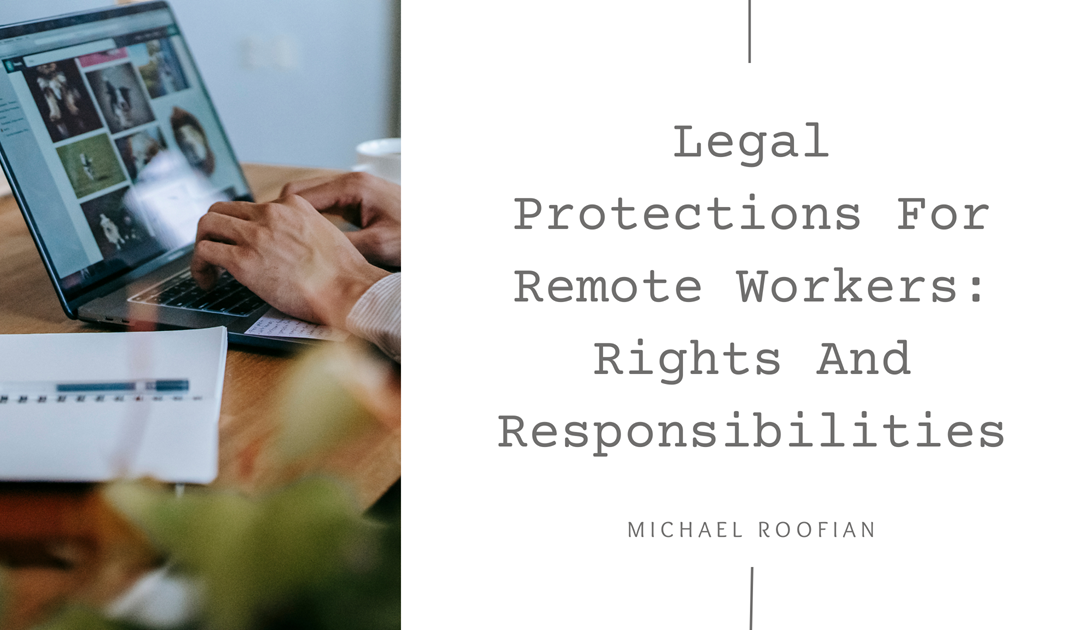The rise of remote work has revolutionized the way businesses operate and how employees engage with their work. As more people work from home or other remote locations, understanding the legal protections for remote workers is crucial for both employers and employees. While remote work offers flexibility and convenience, it also raises complex legal questions regarding workers’ rights, responsibilities, and protections.
One of the primary legal protections for remote workers involves wage and hour laws. The Fair Labor Standards Act (FLSA) requires that non-exempt employees be paid for every hour worked, including overtime. This applies to remote workers just as it does to those working in a traditional office setting. Employers must ensure that remote workers accurately track their hours and are compensated accordingly, including for overtime hours worked beyond the regular workweek. This can be particularly challenging for remote workers with flexible schedules, and employers may need to implement time-tracking systems that allow for accurate recording of work hours.
Another key legal protection is the right to a safe working environment. While remote workers are not physically present in the employer’s office, they are still entitled to a safe work environment. Employers are generally not responsible for the conditions of employees’ home offices, but they do have an obligation to ensure that remote workers are informed about workplace safety. Employers can provide guidance on ergonomics, proper lighting, and the setup of workstations to prevent injuries related to long hours of computer use. Although workers’ compensation laws are often more straightforward in a traditional office setting, remote workers can still file workers’ compensation claims if they are injured while performing work-related tasks at home.
In addition to safety, remote workers are entitled to privacy protections. Remote workers often access sensitive company data from their personal devices, which raises concerns about data security and privacy. Employers must ensure that remote workers have secure access to company systems, using encryption, multi-factor authentication, and other cybersecurity measures to safeguard information. In some jurisdictions, employers may be required to comply with data privacy regulations such as the General Data Protection Regulation (GDPR) or the California Consumer Privacy Act (CCPA), which govern how personal data is collected and stored. Remote workers must also be educated about the importance of protecting sensitive company information and adhering to security protocols.
Employment discrimination laws continue to apply to remote workers, just as they do to those working in-office. Employers are prohibited from discriminating against employees on the basis of race, gender, disability, age, or other protected characteristics. Remote workers are entitled to the same protections against harassment and discrimination as in-office employees. Employers must implement anti-discrimination policies and provide remote workers with a means to report harassment or discriminatory behavior. Virtual environments can sometimes lead to misunderstandings or inappropriate behavior, so employers should take proactive steps to maintain an inclusive and respectful workplace.
Remote workers also have the right to access benefits and compensation, although the specifics can vary depending on the employer’s policies and the jurisdiction. Employers must clearly communicate whether remote workers are entitled to the same benefits as in-office employees, such as healthcare, retirement plans, and paid time off. In some cases, remote workers may be entitled to additional compensation for expenses related to their home office setup, such as office supplies, internet costs, or equipment. Remote workers should also be aware of their rights under state and federal family and medical leave laws, including the Family and Medical Leave Act (FMLA), which may apply to remote workers in certain situations.
One of the most complex issues for remote workers is the question of taxes. Remote work often means employees are working from different states or even countries, and this can create complications with regard to state and local tax laws. Employers must comply with tax withholding and reporting requirements in the jurisdictions where their remote workers are located. In some cases, remote workers may be subject to taxes in both their home state and the state where their employer is based. It is essential for both employers and employees to understand the tax implications of remote work and seek professional guidance to ensure compliance with all relevant tax laws.
Finally, remote workers have the responsibility to maintain open communication with their employers. Clear communication is vital to ensure that expectations regarding work hours, productivity, and availability are understood. Remote workers must adhere to established policies and procedures, including those related to security, timekeeping, and performance. Additionally, employees should communicate any challenges they encounter while working remotely, such as technological issues or personal concerns that may affect their work.
Remote workers benefit from various legal protections, but they also have responsibilities to ensure that they meet expectations and comply with policies. Employers must be proactive in creating comprehensive remote work policies that address issues such as safety, compensation, privacy, and communication. By understanding both the rights and responsibilities involved, remote workers can ensure a positive and legally compliant work experience.
